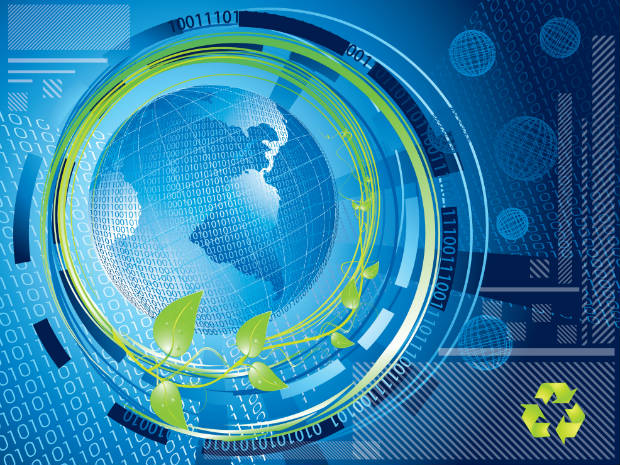E-waste disposal challenge 'not serious' in Singapore

The disposing of electronic waste (e-waste), which is growing rapidly, is of concern in Asia, but the situation in Singapore is not as severe as those experienced in other parts of the region. The situation is further helped by the government launching guidelines by this year to help companies better manage the recycling of infocommunication technology (ICT) equipment.
According to Prashanth Kay, research analyst for environment and building technologies, and David Lee, environmental senior consultant at Frost & Sullivan, the e-waste disposal problem in Singapore is "not as serious or as extensive" as those in other Asian markets.
This is because Singapore is a relatively small country and less populated than countries such as China, Japan and South Korea, so the volume of e-waste generated yearly here is incomparable even though electronic device ownership is close to 100 percent, the analysts said.

The country's limited space also means it is rarely considered a dumping ground for e-waste from developed nations. Emerging markets in Asia such as China, Indonesia and Malaysia, which are bigger in size and have "laxer" regulations for e-waste dumping are typically the preferred destinations, they noted.
"Stringent waste management regulations in the West mean it is 10 times cheaper to transport e-waste halfway across the world to be dumped in [Asia]," they explained.
Asia plays critical role
The analysts stressed Asia's role in improving the global e-waste disposal situation, though. The region currently contributes close to 60 percent of the total e-waste generated globally, driven by the rapid increase of device ownership in Asia and the shorter time of 2 years--compared to the 3.5 years previously--to change devices, they said.
In response, governments in the region are actively looking at various ways to control e-waste dumping and illegal processing and recycling. For instance, Japan, South Korea and Taiwan have e-waste regulations that place responsibility on manufacturers of IT products to recycle or dispose of their products after consumers are done with them. The Philippines also have regulations governing the disposal of consumer electronics, the analysts said.
Singapore, on the other hand, does not have formal e-waste laws. According to a National Environment Agency (NEA) spokesperson, the country has an active second-hand market and effective recycling initiatives, resulting in "very little" e-waste ending up in its disposal facilities.
Additionally, existing e-waste recycling facilities have the capacity to manage the e-waste generated locally, she said.
She also noted companies, including IT vendors, have their own programs to collect used devices for recycling, and these initiatives complement the local waste disposal infrastructure.
Vendors play their part
Companies ZDNet Asia spoke to reaffirmed what the NEA spokesperson said.
Fuji Xerox, for example, collects used printers and cartridges from customers' offices for recycling, said Mok Chee Hong, sustainability ambassador at Fuji Xerox Singapore. The company also recycles its own printing equipment.
Its e-waste management efforts are supported by its integrated recycling centers based in Thailand, China and Australia to meet the recycling needs of its 12 country offices in Asia-Pacific in a strategic and cost-effective manner, added Mok.
Dell has 25 collection points in Singapore for used ink cartridges and works with an environmental partner locally to support its e-waste disposal strategy since this is not a "core competency", noted Crystynna Ewe, regional head of the Take Back department at Dell Asia-Pacific & Japan.
Francis Cheong, senior operations manager for regional sustainability at Nokia, said the company has collected and recycled more than six tons of e-waste from its Singapore operations in 2012 alone. Recycling of electronic products is still a new phenomenon in many countries, and compared to other countries in Southeast Asia, Singapore is "ahead in terms of the recycling rate per population", he said.
The Finnish phonemaker has two drop-off collection points in the city-state, and also organizes public take-back collaboration programs with more than 10 local and international schools, Cheong added.
Common recycling standard coming soon
Going forward, the NEA spokesperson said the agency is working with the Infocomm Development Authority (IDA) of Singapore and Spring Singapore to create a standard for recycling ICT equipment that organizations can refer to. The common standard will also promote the adoption of best practices by the ICT equipment recycling industry, she added.
The joint collaboration began in 2010, and the proposed guidelines are in the final stages of development and expected to be released by the middle of this year, she said.
Asked which areas of e-waste will be of focus, NEA said the standard will have guidelines on best practices for managing ICT equipment waste and recycling, and items within the scope include PCs and associated displays, mobile devices and phones, printers, peripherals, and other accessories.
While compliance with the guidelines is voluntary, the government will continue to monitor the e-waste situation and work with stakeholders and companies to boost e-waste recycling, the NEA spokesperson said.
Mok said: "There is definitely a greater awareness of the importance of e-waste management in Singapore, and the move by the government to push standards is a positive direction."